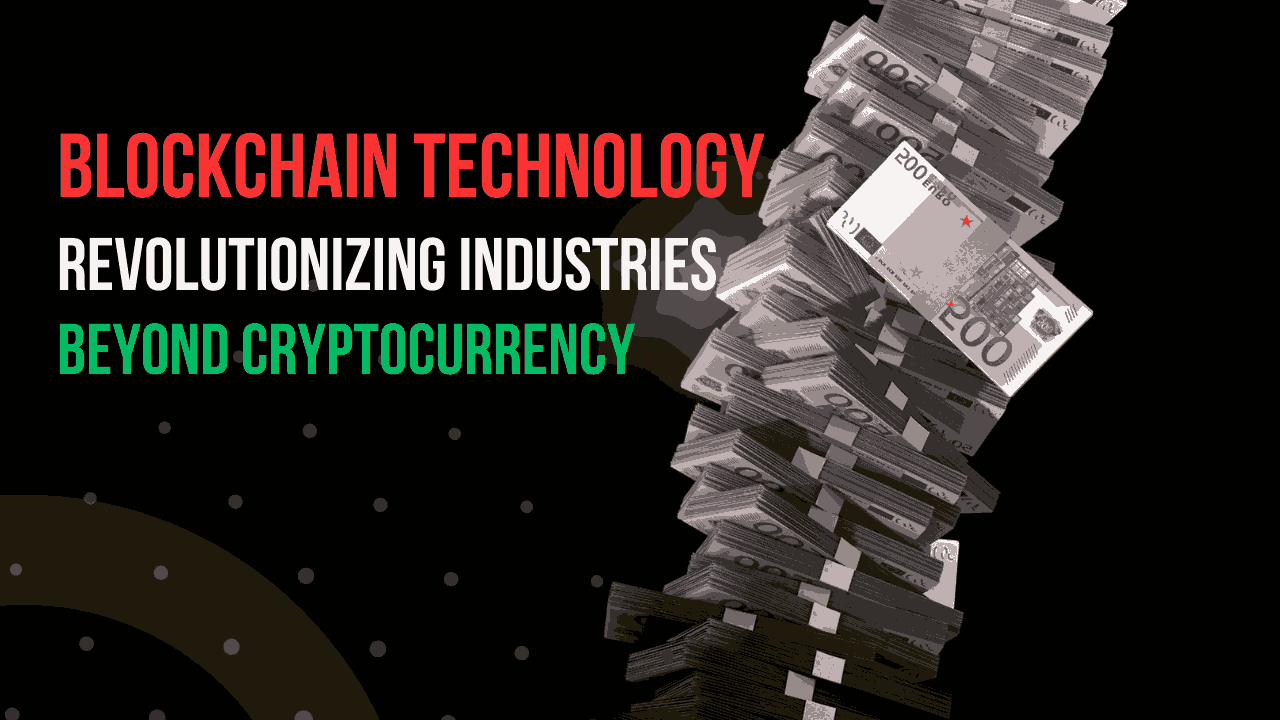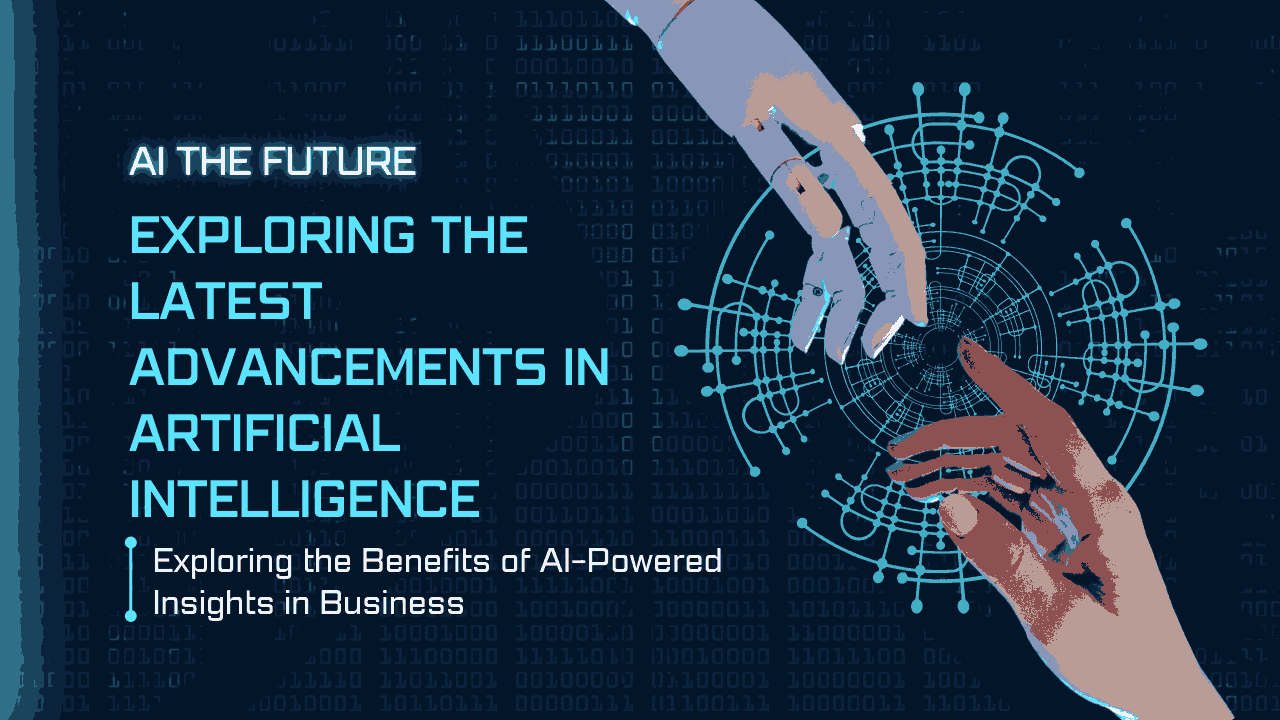
Blockchain technology, originally introduced as the underlying technology for cryptocurrencies like Bitcoin, has evolved into a transformative force that extends beyond digital currencies. With its decentralized and transparent nature, blockchain has the potential to revolutionize industries across the board. In this blog post, we will explore how blockchain technology is reshaping various sectors, from supply chain management to healthcare, finance, cybersecurity, and even real estate.
Topics Covered in this post
- Understanding Blockchain Technology
- Transforming Supply Chain Management
- Enhancing Healthcare
- Disrupting the Financial Industry
- Strengthening Cybersecurity
- Revolutionizing Real Estate
Understanding Blockchain Technology:
Let's start by understanding the fundamentals of blockchain technology. Blockchain is a distributed ledger that records transactions or data across multiple computers, making it immutable and secure. Each block of data is linked to the previous one, creating a chain of information. This decentralized system eliminates the need for intermediaries and provides transparency, traceability, and security.
Blockchain technology is a revolutionary concept that has gained significant attention since its inception as the underlying technology behind cryptocurrencies like Bitcoin. It has the potential to transform various industries by providing decentralized, secure, and transparent systems for data management and transactions. In this section, we will delve into the details of blockchain technology to help you grasp its fundamental concepts.
- What is Blockchain Technology?
At its core, a blockchain is a distributed ledger that records and stores a series of transactions or data across multiple computers or nodes. It operates as a chain of blocks, with each block containing a set of data and a unique identifier called a hash. The hash of each block is generated based on its data and the hash of the previous block in the chain, creating an immutable and tamper-resistant system. - Decentralization and Transparency:
One of the key features of blockchain technology is its decentralized nature. Unlike traditional centralized systems, blockchain operates on a peer-to-peer network, where each participant (node) has a copy of the entire blockchain. This decentralization eliminates the need for a central authority or intermediary, ensuring that no single entity has control over the data or transactions.
Additionally, blockchain offers transparency through its public nature. In public blockchains, anyone can view the contents of the blockchain, including the transactions and their associated data. This transparency fosters trust and accountability, as participants can independently verify and validate the information stored on the blockchain. - Security and Immutability:
Blockchain provides robust security measures to protect the integrity of data and transactions. The decentralized nature of blockchain makes it highly resistant to attacks and tampering. To alter a block in the blockchain, an attacker would need to modify the data in that block and recalculate the hash for that block and all subsequent blocks. This computational effort is practically infeasible, making blockchain highly secure.
Moreover, the immutability of blockchain ensures that once a transaction or data is added to the blockchain, it cannot be altered or deleted. Each block contains a reference to the previous block's hash, creating a chain of blocks where any modification in a previous block would invalidate the subsequent blocks. This immutability makes blockchain a reliable and trustworthy system for storing critical data. - Consensus Mechanisms:
Blockchain networks employ consensus mechanisms to ensure agreement among participants on the validity of transactions and the order in which they are added to the blockchain. Consensus mechanisms, such as Proof of Work (PoW) or Proof of Stake (PoS), enable participants to reach a consensus without relying on a central authority.
In PoW, participants compete to solve complex mathematical puzzles, and the participant who solves the puzzle first gets the authority to add the next block to the blockchain. PoS, on the other hand, determines the right to add blocks based on the stake or ownership of participants in the network. These consensus mechanisms ensure the integrity and security of the blockchain by preventing malicious actors from manipulating the data. - Smart Contracts:
Blockchain technology also introduced the concept of smart contracts. Smart contracts are self-executing agreements that are stored and executed on the blockchain. They contain predefined rules and conditions that automatically trigger actions when those conditions are met. Smart contracts eliminate the need for intermediaries, reduce costs, and increase efficiency in various processes, such as financial transactions, supply chain management, and legal agreements.
Transforming Supply Chain Management:
Blockchain has the power to streamline supply chain operations by providing end-to-end visibility and traceability. With blockchain, stakeholders can securely track and verify each step of the supply chain, reducing fraud, counterfeiting, and improving efficiency. From tracking the origin of products to ensuring fair trade practices, blockchain is revolutionizing how supply chains operate.
Supply chain management is a complex process that involves the movement of goods, services, information, and funds across various stages, from raw material sourcing to the delivery of the final product to the end consumer. However, traditional supply chain systems often face challenges such as lack of transparency, limited traceability, inefficient coordination, and vulnerability to fraud. Blockchain technology has emerged as a promising solution to address these issues and transform supply chain management. In this section, we will explore how blockchain technology is revolutionizing supply chains.
- Enhanced Transparency and Traceability:
Blockchain brings transparency and traceability to supply chains by creating an immutable and auditable record of transactions and data. Each transaction or movement of goods is recorded as a block on the blockchain, providing a transparent and tamper-resistant history of the product's journey. This visibility enables stakeholders to track and verify the origin, authenticity, and movement of goods at every stage, enhancing trust and reducing the risk of counterfeit or fraudulent activities. - Streamlined Documentation and Elimination of Paperwork:
Traditional supply chains often involve extensive paperwork and documentation, leading to delays, errors, and increased administrative costs. By digitizing and storing relevant documents and information on the blockchain, supply chain participants can streamline documentation processes. Smart contracts, self-executing agreements stored on the blockchain, automate tasks such as order fulfillment, payment settlements, and compliance verification, reducing manual intervention and paperwork. - Efficient Inventory Management and Demand Planning:
Blockchain enables real-time visibility into inventory levels and demand patterns across the supply chain. With accurate and up-to-date data, companies can optimize inventory management, reduce stockouts, and improve demand planning. Smart contracts can automatically trigger replenishment orders or production based on predefined rules and thresholds, ensuring timely and efficient supply chain operations. - Secure and Efficient Payments:
Blockchain-based supply chain systems can facilitate secure and efficient payments between participants. Smart contracts can automate payment settlements, ensuring timely and accurate transactions based on predefined conditions. By eliminating the need for intermediaries and reducing transaction costs, blockchain streamlines financial processes and enhances trust among participants. - Supplier and Vendor Management:
Blockchain enables improved supplier and vendor management by providing a transparent and auditable record of their performance, certifications, and compliance. This transparency helps in the selection and evaluation of suppliers, ensuring adherence to quality standards, ethical practices, and regulatory requirements. Smart contracts can also automate the verification and validation of supplier credentials, simplifying the onboarding and monitoring process. - Counterfeit Prevention and Product Authentication:
Blockchain technology can significantly reduce the risk of counterfeit products in supply chains. By recording the origin, manufacturing details, and movement of goods on the blockchain, stakeholders can verify the authenticity and integrity of products. This helps in combating counterfeit activities, protecting brand reputation, and ensuring consumer safety. - Sustainability and Ethical Supply Chains:
Blockchain can facilitate the development of sustainable and ethical supply chains by providing transparency into environmental, social, and governance (ESG) practices. Companies can track and verify sustainable sourcing, fair trade, labor standards, and carbon footprint reduction initiatives. This transparency helps in building trust among consumers who prioritize responsible and ethical products.
Enhancing Healthcare:
Blockchain technology has the potential to revolutionize healthcare by improving data interoperability, security, and patient privacy. It enables secure sharing of medical records, reducing administrative burdens and enhancing patient care. Additionally, blockchain-based systems can facilitate clinical trials, pharmaceutical supply chain management, and health data analytics, leading to better healthcare outcomes.
Blockchain technology is revolutionizing the healthcare industry by addressing key challenges related to data interoperability, security, patient privacy, and trust. With its decentralized and transparent nature, blockchain has the potential to transform healthcare systems, improve patient outcomes, and streamline processes across the industry. In this section, we will explore how blockchain technology is enhancing healthcare.
- Secure and Interoperable Health Data Exchange:
Blockchain technology enables secure and interoperable exchange of health data across different healthcare providers, systems, and stakeholders. By storing health records and other medical data on the blockchain, patients can have control over their own data and grant access to healthcare providers as needed. This decentralized approach ensures data integrity, reduces duplication, and enhances collaboration among healthcare providers, leading to more informed decision-making and better patient care. - Patient Identity Management:
Blockchain can improve patient identity management by providing a secure and tamper-resistant system for patient identification. With blockchain, patients can have a unique digital identity that is verifiable and immutable. This eliminates duplicate records, enhances data accuracy, and reduces the risk of medical identity theft. Blockchain-based identity management can also streamline administrative processes, such as patient registration and insurance verification. - Clinical Trials and Research:
Blockchain technology has the potential to revolutionize clinical trials and medical research. By using smart contracts on the blockchain, researchers can automate consent management, data sharing, and adherence to protocols. This ensures transparency, traceability, and integrity in the research process. Blockchain can also enable secure and privacy-preserving data sharing among researchers, promoting collaboration and accelerating medical discoveries. - Pharmaceutical Supply Chain Management:
Blockchain offers solutions for improving the transparency and security of pharmaceutical supply chains. By tracking the movement of medications and recording it on the blockchain, stakeholders can verify the authenticity, integrity, and provenance of drugs. Blockchain-based supply chain systems can help prevent counterfeit drugs, reduce medication errors, and ensure the quality and safety of medications. - Health Insurance and Claims Processing:
Blockchain technology can streamline health insurance processes, including claims processing and fraud detection. By using smart contracts, insurance claims can be automatically verified and settled based on predefined rules. This reduces paperwork, administrative costs, and delays in the reimbursement process. Additionally, the transparent and auditable nature of blockchain can help detect fraudulent activities and improve the accuracy of claims processing. - Data Security and Privacy:
Blockchain provides enhanced security and privacy for sensitive health data. With its decentralized and encrypted nature, blockchain ensures that patient data is protected from unauthorized access and tampering. Patients can have control over their data, granting access to specific healthcare providers or researchers as desired. Blockchain-based systems also support granular data consent management, allowing patients to specify who can access their data and for what purpose. - Healthcare IoT and Medical Device Integration:
Blockchain can facilitate the integration of Internet of Things (IoT) devices and medical equipment into healthcare systems. By leveraging blockchain's decentralized architecture, healthcare IoT devices can securely transmit and store data, ensuring data integrity and confidentiality. This enables real-time monitoring, remote patient care, and efficient data exchange between devices and healthcare providers.
Disrupting the Financial Industry:
Blockchain technology is disrupting the financial industry by introducing efficient and transparent systems. It enables faster and secure cross-border transactions, eliminates intermediaries, and reduces transaction costs. Smart contracts, self-executing agreements stored on the blockchain, automate processes, such as payments and compliance, revolutionizing financial services and fostering financial inclusion.
Blockchain technology has emerged as a disruptive force in the financial industry, revolutionizing traditional systems and processes. With its decentralized and transparent nature, blockchain offers solutions that enhance security, efficiency, and accessibility in financial transactions and services. In this section, we will explore how blockchain technology is disrupting the financial industry.
- Efficient and Transparent Transactions:
Blockchain technology enables faster, secure, and transparent transactions by eliminating intermediaries and reducing the need for manual reconciliation. With blockchain, financial transactions can be conducted directly between parties, reducing processing times, costs, and the risk of errors. The transparency of blockchain ensures that all participants have access to the same information, reducing fraud and increasing trust in financial transactions. - Cross-Border Payments and Remittances:
Blockchain-based systems are transforming cross-border payments and remittances by providing faster, cost-effective, and secure solutions. Traditional cross-border transactions are often slow, expensive, and involve multiple intermediaries. Blockchain-based platforms can streamline this process by removing intermediaries, settling transactions in real-time, and reducing transaction fees. This enables individuals and businesses to send and receive funds globally with greater speed and efficiency. - Decentralized Finance (DeFi):
Blockchain technology has given rise to Decentralized Finance (DeFi) platforms, which aim to provide financial services traditionally offered by intermediaries in a decentralized manner. DeFi platforms leverage smart contracts on the blockchain to automate processes such as lending, borrowing, trading, and asset management. These platforms offer increased accessibility, transparency, and efficiency, enabling individuals to participate in financial activities without relying on traditional financial institutions. - Tokenization and Asset Management:
Blockchain enables the tokenization of assets, transforming how assets are issued, traded, and managed. Tokenization represents real-world assets, such as real estate, art, and commodities, as digital tokens on the blockchain. These tokens can be easily traded, fractionalized, and transferred, enabling increased liquidity and accessibility to a broader range of investors. Additionally, blockchain-based asset management platforms provide transparent and auditable records of asset ownership and transactions. - Smart Contracts and Automation:
Blockchain's smart contract functionality is disrupting traditional financial agreements and processes. Smart contracts are self-executing contracts with predefined rules and conditions that automatically trigger actions when those conditions are met. They enable automation and eliminate the need for intermediaries, reducing costs and improving efficiency in various financial processes, such as insurance claims, loan agreements, and compliance procedures. - Enhanced Security and Fraud Prevention:
Blockchain technology offers robust security measures that enhance the integrity and security of financial transactions. The decentralized and tamper-resistant nature of blockchain makes it difficult for malicious actors to manipulate or alter transaction records. Additionally, blockchain-based identity management systems provide secure and verifiable digital identities, reducing the risk of identity theft and fraud. - Financial Inclusion:
Blockchain technology has the potential to improve financial inclusion by providing access to financial services for the unbanked and underbanked populations. With blockchain, individuals can have access to digital wallets, secure storage of assets, and permissionless financial transactions without the need for a traditional bank account. This opens up opportunities for individuals in underserved regions to participate in the global economy and access financial services.
Strengthening Cybersecurity:
The decentralized and tamper-resistant nature of blockchain technology makes it an excellent tool for enhancing cybersecurity. Blockchain-based solutions can secure digital identities, protect against data breaches, and prevent fraud. By decentralizing data storage and encryption, blockchain offers robust security measures that can safeguard sensitive information and strengthen cybersecurity frameworks.
Cybersecurity is a critical concern in today's digital landscape, as organizations face increasingly sophisticated cyber threats and data breaches. Blockchain technology has emerged as a powerful tool in strengthening cybersecurity measures and protecting sensitive data. Its decentralized, immutable, and transparent nature offers unique advantages that can significantly enhance security practices. In this section, we will explore how blockchain technology is strengthening cybersecurity.
- Data Protection and Encryption:
Blockchain technology employs robust encryption algorithms to secure data stored on the blockchain. Each transaction or data entry is encrypted and linked to the previous transaction, forming a chain of blocks. The decentralized nature of the blockchain ensures that data is distributed across multiple nodes, making it more resistant to unauthorized access or tampering. The use of cryptographic techniques in blockchain technology provides an additional layer of data protection, reducing the risk of data breaches. - Distributed and Decentralized Architecture:
The decentralized architecture of blockchain makes it inherently more secure compared to traditional centralized systems. In a blockchain network, data is stored and verified across multiple nodes, making it difficult for hackers to compromise the entire network. Even if one node is compromised, the integrity of the data can be maintained through consensus mechanisms and the verification of multiple copies of the blockchain. This distributed and decentralized structure enhances the resilience and security of the overall system. - Immutable and Tamper-Resistant Records:
Blockchain's immutability and tamper-resistant nature make it highly effective in safeguarding critical data. Once a transaction or data entry is added to the blockchain, it becomes part of a permanent and unchangeable record. Altering a transaction would require the consensus of the majority of network participants, making it practically impossible to manipulate or tamper with the data stored on the blockchain. This characteristic of blockchain helps ensure the integrity and authenticity of data, providing a strong defense against cyber attacks. - Identity and Access Management:
Blockchain technology can enhance identity and access management (IAM) practices, mitigating the risk of unauthorized access and identity theft. By leveraging blockchain's decentralized identity management solutions, individuals can have more control over their digital identities. Blockchain-based identity systems provide secure and tamper-proof identity verification, reducing the reliance on centralized databases and mitigating the risk of single points of failure. This improves authentication processes and strengthens overall cybersecurity measures. - Secure Supply Chain Management:
Blockchain technology offers enhanced security and transparency in supply chain management, protecting against counterfeit products, unauthorized modifications, and fraudulent activities. By recording the entire supply chain history on the blockchain, stakeholders can verify the authenticity and integrity of goods and track their journey from production to delivery. This strengthens cybersecurity measures by reducing the risk of compromised products entering the supply chain and ensures the integrity of the overall ecosystem. - Smart Contracts for Secure Transactions:
Blockchain's smart contracts provide a secure and automated way to execute transactions and enforce predefined rules. Smart contracts are self-executing agreements that eliminate the need for intermediaries, reducing the risk of human error and malicious manipulation. They facilitate secure and transparent transactions by automating the verification and execution process based on predefined conditions. Smart contracts can be particularly useful in areas such as financial transactions, insurance claims processing, and legal agreements, enhancing cybersecurity by reducing vulnerabilities in traditional contract execution. - Threat Intelligence and Auditing:
Blockchain technology can facilitate the sharing of threat intelligence and auditing practices among organizations. By securely sharing information about cyber threats, vulnerabilities, and attack patterns on the blockchain, organizations can collectively strengthen their cybersecurity defenses. Blockchain-based threat intelligence platforms provide a secure and decentralized way to exchange sensitive information, enabling proactive identification and mitigation of cybersecurity risks.
Revolutionizing Real Estate:
Blockchain is transforming the real estate industry by introducing transparency, efficiency, and liquidity to property transactions. Through blockchain-based platforms, real estate transactions can be conducted securely and quickly, reducing paperwork and increasing accessibility for investors. Blockchain-enabled property registries also prevent fraudulent activities and simplify property ownership verification.
Blockchain technology is making a significant impact on the real estate industry, revolutionizing traditional processes and bringing new opportunities for efficiency, transparency, and security. By leveraging the decentralized and transparent nature of blockchain, real estate transactions, property management, and investments are undergoing transformative changes. In this section, we will explore how blockchain technology is revolutionizing the real estate industry.
- Transparent and Efficient Transactions:
Blockchain technology brings transparency and efficiency to real estate transactions. By recording property ownership and transaction history on the blockchain, all relevant parties have access to a secure and tamper-proof ledger. This eliminates the need for intermediaries, such as title companies and escrow agents, reducing costs and streamlining the transaction process. Additionally, blockchain-based smart contracts enable automated and self-executing agreements, ensuring faster and more secure transaction settlements. - Fractional Ownership and Investment Opportunities:
Blockchain enables fractional ownership and investment opportunities in real estate assets. Through tokenization, real estate assets can be divided into digital tokens on the blockchain. This allows investors to own a fraction of a property and trade those tokens, providing liquidity and opening up real estate investment to a broader range of individuals. Fractional ownership through blockchain also simplifies the process of diversifying investment portfolios and reduces barriers to entry. - Improved Property Records and Title Management:
Blockchain technology improves the management of property records and titles by providing an immutable and transparent system. Property records, including ownership history, title transfers, and encumbrances, can be securely stored on the blockchain, reducing the risk of fraudulent transactions and disputes. Blockchain-based property records enable easy verification of ownership and simplify the process of conducting due diligence when buying or selling properties. - Enhanced Real Estate Financing:
Blockchain technology offers new possibilities for real estate financing, particularly through crowdfunding and peer-to-peer lending platforms. Blockchain-based platforms facilitate direct connections between borrowers and lenders, eliminating the need for traditional financial intermediaries. Smart contracts on the blockchain automate loan agreements, payment schedules, and collateral management, reducing paperwork, costs, and delays in real estate financing. - Streamlined Property Management and Smart Contracts:
Blockchain technology streamlines property management processes by providing a secure and transparent platform for managing lease agreements, rental payments, and property maintenance. Smart contracts on the blockchain enable automated rent collection and distribution, lease renewal notifications, and maintenance requests. This improves efficiency, reduces disputes, and enhances the overall tenant-landlord relationship. - Verification of Property Data and Due Diligence:
Blockchain technology enhances the verification and validation of property data and due diligence in real estate transactions. Property information, such as building permits, surveys, and certificates of compliance, can be securely stored on the blockchain, ensuring transparency and authenticity. Blockchain-based platforms also enable the verification of property data from trusted sources, reducing the risk of relying on inaccurate or fraudulent information. - Increased Security and Fraud Prevention:
Blockchain technology provides increased security and fraud prevention in the real estate industry. The decentralized and immutable nature of blockchain makes it difficult for malicious actors to manipulate property records, transactions, or ownership details. By eliminating the reliance on centralized databases and introducing consensus mechanisms, blockchain enhances the security and integrity of real estate transactions, mitigating the risk of fraud and unauthorized activities.
Conclusion:
Blockchain technology holds immense potential in revolutionizing industries beyond cryptocurrency. Its decentralized nature, coupled with features such as smart contracts and secure data management, is reshaping supply chains, healthcare, finance, cybersecurity, and real estate. As organizations and industries embrace this technology, they can unlock new opportunities, streamline processes, and create more transparent and efficient systems.
By embracing blockchain technology, we can envision a future where industries operate with greater trust, transparency, and security, empowering individuals and organizations to drive innovation and redefine how we interact and conduct business across various sectors.
You are reading this post on Sciaku (Science Knowledge)
Also Read:- Exploring the Latest Advancements in Artificial Intelligence





